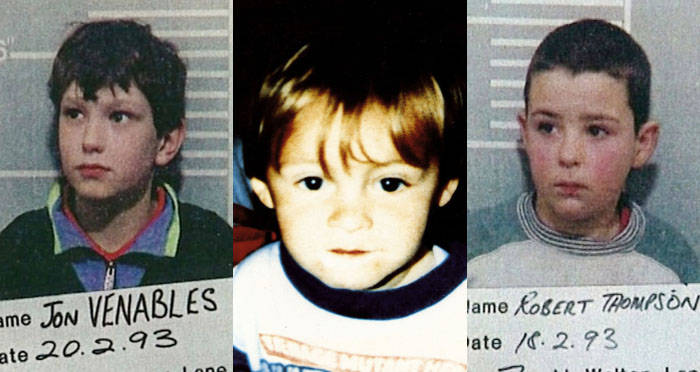It was the case that shocked an entire nation. The murder of 2-year-old James Bulger, who was killed by Jon Venables and Robert Thompson, both aged ten at the time, after they snatched and led the infant away from a shopping centre in Merseyside on 12 February 1993.
After much public and media attention, the child murderers were sent to a young offenders’ institute, where they stayed until their release at the age of 18 in 2001. It was deemed that they would be anonymous for the rest of their lives, assume new identities and disappear into obscurity.

This life-long anonymity has prevented publications from revealing their new identities, with anyone breaching it likely to face jail. This prevention was put into force to prevent potential retaliation from members of the public, who could potentially harm and even kill the two former child murderers.
That decision was made in 2001 when the internet was still very much still in its infancy stage and where a tweet was the noise a bird made rather than a 140-character rant on social media.
Who else has been granted lifelong anonymity?
As well as Venables and Thompson, only four other individuals have been granted lifelong anonymity in Britain. This means they cannot be identified by law once they have been released. While not exclusively belonging to individuals who have committed murders, these individuals have been involved in high-profile cases that have invoked public scrutiny.
These individuals include Maxine Carr, the girlfriend of Ian Huntley, who went on to murder schoolgirls Holly Wells and Jessica Chapman. Carr gave a false alibi to police during the initial investigation, and as a result, huge backlash and public outrage over her actions have meant that her safety could be in jeopardy.
The other individuals giving lifelong anonymity include child killer Mary Bell and the Edlington brothers, two anonymous brothers aged 10 and 11, who have never been named and who were both arrested and charged with the attempted murder of two 11 and 9-year-old boys in a rural area of Edlington, South Yorkshire.
Is it right to give lifelong anonymity?
While these cases have received wide coverage and have sparked outrage, many have questioned the need for lifelong anonymity, particularly the cost from taxpayers to protect these individuals once released, with sources estimating a reported cost of £250,000 per identity to the UK taxpayer.
Others have also raised the moral ethics and why a convicted killer should ever be protected in the first place.

James Bugler’s father has campaigned for the anonymity order to be lifted on his son’s murderers. This is in light of the development and usage of social media, in which users have shared alleged recent photos of Jon Venables, who, is 2017, was jailed for up to three years after admitting possession of 1,170 images of child sex abuse.
What does the law state?
UK law recognises the public interest in reporting the outcome of court proceedings and the deterrent effect that the identification of those guilty of serious crimes can have on others.
However, if potential harm to the defendant outweighs the public interest, then an anonymity order can be made. This is the case of Jon Venables and Robert Thompson. This prevents journalists, publications and news outlets from revealing information on those under the anonymity order and also stops members of the public from sharing information and details.

Despite the openness and freedom that social media provides, there are consequences for those users who share alleged photos and information on those individuals protected legally by anonymity. This can include fines and imprisonment.
Actress and former Celebrity Big Brother star Tina Malone was handed an eight-month suspended sentence and ordered to pay £10,000 towards the costs of the case after she had shared photos allegedly showing Jon Venables and his new identity.
So, should a convicted murderer be given lifelong anonymity for security reasons? While the law states yes, and has only been given to a handful of individuals in high-profile cases. However, public response indicates that it would be better to serve a lifelong sentence in prison than a lifelong sentence behind anonymity, yet always looking over your shoulder.
But maybe the uncertainty of never knowing who really is the culprit is the ultimate punishment.
Looking for jobs?
To find the latest security jobs, check out our Jobs Board, which has 1,000+ jobs from the UK’s best security companies.
If you’re on the hunt for a security job on the go, download the GuardPass app for all the latest jobs and more. The GuardPass App is available for download on the Apple App Store or on the Google Play Store.


